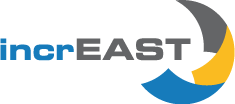25.02.2024 | Brussels, Belgium
16th EU-Ukraine Summit
The 16th EU-Ukraine Summit took place in Brussels on 25 February. The Summit was hosted by the President of the European Council, Herman Van Rompuy, and the President of the European Commission, José Manuel Barroso. Ukraine was represented by President Viktor Yanukovych.
Speaking after the summit, Herman Van Rompuy said: “The issues we discussed witness the depth of our relationship and the great potential there is to deepen it even further. There is currently a historic opportunity to make a leap in EU-Ukraine relations by signing the Association Agreement/Deep and Comprehensive Free Trade Area by the time of the Vilnius Summit in November. […] It demonstrates our commitment towards Ukraine and the Ukrainian people […] We had a constructive working summit. We discussed the steps ahead in order to have the appropriate political circumstances to proceed with the signing of the Association Agreement. We focused on the three main areas where the European Union has set out specific criteria, namely selective justice, elections and Association Agenda reforms. I have underlined the European Union's call for determined action and tangible progress in these areas at the latest by May this year. I thank President Yanukovich for presenting the actions Ukraine has taken so far to follow up on these criteria. Some steps have been taken, but we still need to see more and concrete progress. […] Let me repeat that the European Union hopes to sign and ratify the Association Agreement with Ukraine, acknowledging its European aspiration and its European choice. Such a choice and especially the relationship it entails implies a commitment to shared values.”
José Manuel Barroso said: “The Association Agreement we have negotiated with Ukraine is the most advanced agreement of this type ever negotiated by the European Union and will bring concrete benefits to both EU and Ukraine's citizens. […] The Deep and Comprehensive Free Trade Area foreseen by the [Association] Agreement will give Ukraine greater access to the world's biggest internal market and bring significant benefits in terms of increased trade, investment and real economic modernisation. […] I am glad that Ukraine, through President Yanukovich, has expressed its unequivocal commitment to seizing this opportunity to pursue genuine reforms and to uphold democratic values. […] I now look forward to concrete action being taken in the three key areas set out in our joint communiqué: changes in the electoral code; overall political and economic reforms and decisively addressing the issue of selective justice. These are real and feasible benchmarks, which have to be tackled in the very short-term."
On the Agenda
The Summit took place at a defining moment in EU-Ukraine relations. On 10 December 2023 the Foreign Affairs Council adopted conclusions on a sequenced policy of engagement with Ukraine.
In order for this policy to bear fruit and to enable the possible signing of the Association Agreement by the time of the November Eastern Partnership Summit, Ukraine needs to undertake determined action and show tangible progress by May at the latest in three key areas: 1) follow-up to electoral shortcomings of 28 October 2023 parliamentary elections; 2) addressing the issue of selective justice and preventing its recurrence; and 3) progressing on the agenda reforms set out in the jointly agreed Association Agenda.
On the common objective of Ukraine’s economic integration with the EU, the leaders’ discussed macro-economic stability, public finance management, the improvement of the business and investment climate and trade.
In the field of energy, leaders reviewed the state of play of EU’s financial and technical assistance and cooperation, in particular the modernisation of the Ukrainian Gas Transmission System, energy sector reform and the implementation of Energy Community commitments.
On the issue of mobility, leaders discussed progress in the implementation of the Action Plan on Visa Liberalisation and the state of play on the conclusion of an amended Visa Facilitation Agreement.
Over lunch, leaders exchanged views on topical international and regional issues, including the Ukraine’s priorities for its OSCE Chairmanship in office in 2013, the frozen conflict in Transnistria, relations with Russia and Belarus, participation in CSDP missions as well as the preparations for the Eastern Partnership summit in Vilnius.
Background
EU-Ukraine relations are based on the Partnership and Co-operation Agreement (PCA) which entered into force in 1998. The partnership aims to promote political dialogue, trade and investment as well as economic, social and cultural cooperation.
On 30 March 2012, an ambitious Association Agreement (AA), including provisions establishing a Deep and Comprehensive Free Trade Area (DCFTA), was initialled. The AA is intended to provide a new legal framework for EU-Ukraine relations. It is a concrete way to sustain positive dynamics in our relations, focusing on support to core reforms, on economic and political governance and cooperation across a range of sectors. The AA with Ukraine will also be the first of a new generation of Association Agreements with Eastern Partnership countries. The AA could be signed in the Eastern Partnership Summit in Vilnius in November 2013, if determined action is taken and tangible progress made by Ukraine in the three areas of electoral code, general agenda reforms and selective justice.
Some key issues of EU-Ukraine relations are EU assistance, Trade relations, Energy, Nuclear Safety, Mobility, Multilateral cooperation at Eastern Partnership, Security and Defence, and Science and Technology.
Source and further information: European Union/ External Action

